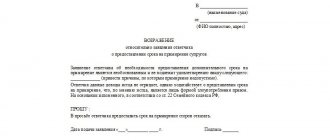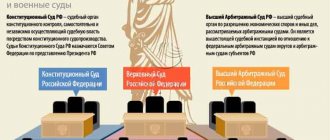What prohibitions and restrictions may apply to vehicles?
It could be:
- prohibition or restrictions on registration activities;
- prohibition from undergoing technical inspection:
Such a punitive measure was often used several years ago, because car owners have to undergo maintenance much more often than register a car, which means that it was possible to force the debtor to pay the bills much faster. However, the ban on undergoing maintenance deprived the car owner of the right to purchase an MTPL policy. Car owners filed lawsuits en masse about the illegality of the actions of bailiffs and won the cases. This forced FSSP employees to practically abandon the use of this measure.
- ban on disposal.
The most common punitive measures today are a ban or restriction of state registration.
Who imposes a ban on vehicle registration in 2021?
The reason why a car is subject to registration restrictions is the debts of its owner. Since tax obligations can have different origins, a ban on registration actions in 2021 can be carried out by several services:
- customs authorities;
- investigative authorities;
- traffic police officers;
- judicial authorities;
- social service employees.
Regardless of which government service made the decision on the ban in 2021, it will be possible to deregister the car only after the dispute has been fully resolved and official confirmation has been received that there are no claims against the owner.
Who can restrict or ban state registration and for what?
The list of authorities is presented in the Order of the Ministry of Internal Affairs “On the procedure for registering vehicles” (N1001 dated November 24, 2008). Among other things, it says that a ban or restriction may be imposed:
- by a court order (for non-payment of taxes, late payment of traffic police fines, debts to utility or credit organizations, as well as during the division of property);
- investigative authorities (if the car is wanted);
- Traffic police (if external discrepancies are detected in the car with the characteristics specified in the technical passport);
- social protection authorities;
- customs representatives (in case of violations of import rules or indication of false information about the vehicle);
- other bodies vested with the necessary powers.
If you paid the debt, but the ban is not lifted
If the owner has paid and extinguished the debt obligation, and the ban on registering the car has still not been lifted, then the presence of other restrictions should be clarified. It is possible that several bans have been imposed on one vehicle, and in order to obtain permission to re-register the car in 2021, it is necessary to deal with each claim.
In this case, you should contact the traffic police again and clarify whether information about the termination of the enforcement case or a court decision was transmitted. If a document is lost during the transfer process, experts recommend delivering a copy of the permit to the traffic police department yourself.
What are the risks of buying a car with restrictions?
A car with a court ban on registration actions will not be able to go through the registration procedure with the traffic police. The new owner has ten days from the date of purchase of the car to do this. Otherwise, according to Article 19.22 of the Code of Administrative Offenses of the Russian Federation, the owner faces a fine of one and a half to two thousand rubles.
Driving an unregistered car threatens the owner with a fine of 500 to 800 rubles. If you are stopped again, the amount of the penalty will increase to 5 thousand rubles. The car owner also faces deprivation of his license for a period of one to three months.
How to find out about the ban on car registration in 2021?
It is important to understand that in such a situation, a law-abiding owner will not put the car up for sale. But if the cost of the car is an order of magnitude lower than its analogues on the market, then you should be wary. If you have the original PTS and there are no visible damages that indicate a serious accident, you should carefully study the legal history of this car. After all, a low price for a vehicle in good technical condition is a very rare occurrence. One of the reasons may be the registration ban that the new owner will have to face. The easiest way to check a ban on car registration is to check the traffic police database.
How to remove restrictions on a car
In a situation where an unscrupulous owner did not inform you about the existing ban before purchasing, experts advise finding out what caused the punitive sanctions and which government agency initiated their imposition. A photocopy of the resolution must be issued to the MREO.
Then everything depends on the date indicated in the document. If you purchased a car before the foreclosure was imposed on the previous owner, you must write an application to the FSPP with a request to remove the restriction and submit papers that will serve as confirmation of your ownership rights (DCP). In many cases, this is enough to lift the ban. True, no one can guarantee that this will happen right away. You can hear many stories from unlucky customers with both happy and sad endings: for some it takes a day to lift restrictions, for others it takes months or even years. In any case, if representatives of the FSSP ignore your requests, contact the court for help.
If the DCP (purchase and sale agreement) has not been drawn up, you can:
- pay off the debt yourself (it’s good if we are talking about two or three thousand rubles, but what if about tens or even hundreds of thousands?);
- try to find the former owner of the car and demand that he pay off the debts that caused the ban or restrictions - this option is more of a fantasy, since finding the previous owner, especially if he does not want it or the car was bought in another region of the country, can be very difficult (and It’s not a fact that he will agree to pay the bills).
Remember that in order to cancel the restrictions, you must present the bailiff with papers confirming payment of the debt. After this, he must give you a document on lifting the ban, with which you need to go to the traffic police. The bailiff is also required to send a similar document there, but sometimes such sending takes quite a long time.
There are situations when the best solution is to file a claim to terminate the contract and return the amount paid to the seller. For example, in a situation if it turns out that a restriction has been imposed on the car due to its being in collateral. The basis for applying to the judicial authorities will be Article 450 of the Civil Code of the Russian Federation, which provides for the possibility of terminating the contract if one of the parties seriously violates the rules of the contract.
Lawyer's opinion
Sergei Radko, lawyer for the motorists movement “Freedom of Choice”
Sergei Radko, lawyer for the motorists movement “Freedom of Choice”
If an insured event occurs, you may be denied compensation. The damage is compensated to the owner, but formally he is the previous owner of the car - you didn’t register it with the traffic police. Representatives of the insurance company may ask you to show documents for the car, and they indicate the owner of another person. Therefore, he will be paid
Fate of the petition
If a petition is made in a lawsuit or during a trial, the court will definitely bring this petition up for discussion at the court hearing.
During the discussion, the court will find out the opinion of the parties and other participants in the process on the merits of the submitted petition, and then make a ruling. As a rule, requests for interim measures are always granted.
The decision made is sent to the registration authority, which will enter information about the ban into the registration records. Usually the court independently sends the determination to the destination. But it is quite possible that the court will transfer a copy of the ruling to the plaintiff, and he, in turn, will take it to the required registration authority.
If a decision is made that is positive for the plaintiff, the ban remains in force until the decision is fully executed. If the claim is rejected, the ban is lifted simultaneously with the rendering of the decision.
Types of vehicle impound
This question was already raised at the beginning of the article, it’s time to consider it in more detail. The type of arrest chosen by the bailiff determines both the ability to operate the vehicle during the arrest and the likelihood of completely losing ownership of the car.
The main types of arrest can be deduced from the provisions of Part 4 of Article 80 of Federal Law No. 229:
- Prohibition to dispose of a car . We will consider this option as the least strict, and below we will return to it in more detail.
- Restriction of the right to use . The owner remains with the car, but its use is limited (from partial restrictions to a complete ban on driving such a vehicle).
- Seizure of a vehicle . A seized car becomes inaccessible to the owner - it is transferred for storage to other persons or to specialized organizations.
A logical continuation is the sale of the debtor’s property, but, being a consequence of the introduced prohibitions, this action is not directly an arrest.
When can you drive a seized car?
Let us return again to a question that has already been partially touched upon. Are there options when operating a seized car is legal? Yes it is possible.
In accordance with Part 2 of Article 86 of Federal Law No. 229, seized property can be transferred for storage:
- A special organization that has a corresponding agreement with the FSSP.
- To the claimant.
- Relatives of the debtor.
- To the debtor himself.
At the same time, Part 3 of Article 86 of Federal Law No. 229 gives the bailiff the right to give the person to whom the seized property has been transferred for storage the opportunity to use such a car. to this effect must be drawn up .
Thus, if the seized property has been transferred for storage to the owner-debtor (about which there is relevant information in the decree and the act of seizure), and the bailiff has given written consent to its operation by the debtor, driving the seized car will be considered legal .
8(800)350-23-68
Dmitry Konstantinovich
Expert of the site "Legal Consultant"
Ask a Question
Among other things, this means that the operation of such a vehicle must be carried out in the presence of the listed documents: a resolution / act with a note on transfer to the debtor for storage and consent to use. This is not a legal requirement, but it will help you avoid a lot of trouble when checking on the road.
When can you not seize a car?
If the owner-debtor is a citizen of Russia - an individual (private) person, then there is only one condition under which the vehicle cannot be arrested. In accordance with Part 1 of Article 79 of Federal Law No. 229, this is established by Article 446 of the Code of Civil Procedure of the Russian Federation, which, in turn, in part one, indicates the impossibility of arresting a vehicle if it is necessary due to the debtor’s disability .
For legal entities with debts, the list of such property (in accordance with the same articles of Federal Law No. 229 and the Code of Civil Procedure of the Russian Federation) is established by a separate Federal Law.
Grounds for application
There is an opinion that a request to seize property must be justified by the fact that the plaintiff has reason to assume that the defendant intends to hide his property in order to make it impossible to enforce the collection. This is wrong.
To apply for arrest is the indisputable right of the plaintiff and he does not need to justify anything; it is enough to just indicate that the arrest is necessary for the purpose of further smooth execution of the court decision.
However, if the plaintiff has evidence that the defendant is selling his property or trying to sell it, then the petition can refer to this. You can also attach a source of evidence, for example, an advertisement in a newspaper about the sale of an apartment or car.
Check on the bailiffs website
Unlike the traffic police, the bailiff service does not take into account cars, but debtors. When opening the FSSP debtor verification service, you need to enter the following data:
- citizen's full initials;
- date of birth;
- region of residence.
If enforcement proceedings are being carried out against the debtor, the FSSP RF service will provide information about the amount of debt and the restrictions imposed.
We recommend checking the car using both services, since only together they can provide comprehensive information regarding the arrest or restrictions on a specific car.
Who can impose it and on what basis?
At first glance, everything is quite simple. There are only three institutions that can use arrest as interim measures:
- court;
- Bailiffs Service;
- Customs.
Customs is a separate and rather specific issue. For the purposes of this proceeding, it will be enough to say that their capabilities are limited to cases of non-compliance with customs legislation when importing vehicles, and we will not return to the issue further in this article.
We will consider the remaining cases - courts and bailiffs - separately, but first about the seizure of vehicles by banks, creditors and other persons to whom the owner of the vehicle has incurred a debt (collectors).
8(800)350-23-68
Dmitry Konstantinovich
Expert of the site "Legal Consultant"
Ask a Question
For those readers who have recently begun to get acquainted with our materials, I will briefly remind you of the difference between the concepts of “debt” and “debt”. Debt is not a basis for sanctions, because assumes the current state of affairs. Debt is already a violation of debt obligations, and the car can be seized for it. The simplest example is a bank loan. Everything you borrowed from the bank is debt. By paying it off on time, you reduce the size of the debt and cannot be punished for having it. However, once a payment is late, a debt arises.
Can a bank seize a car?
Neither banks, nor housing and communal services enterprises, nor the tax service, nor the ex-wife to whom there is arrears of alimony, nor any other creditor (collector) has the legal right to seize property .
But all of the listed persons and organizations have the opportunity to initiate an arrest by starting enforcement proceedings . It is no coincidence that we started with this option to indicate the mandatory participation of bailiffs (bailiffs from the FSSP - the Federal Bailiff Service, including its territorial branches). Please pay special attention to this fact - we will need it later.
For what reasons is it imposed by the court?
There can be many such reasons. To appreciate the scale, let’s look at several basic legal acts that imply the seizure of a car:
- Article 115 of the Criminal Procedure Code of the Russian Federation : within the framework of a civil claim, for arrears of fines, other types of property penalties, including confiscation of property, envisaged by the criminal legislation of Russia.
- Article 140 of the Civil Procedure Code of the Russian Federation : within the framework of a civil claim, incl. when collecting debts on loans, alimony, taxes, housing and communal services, etc.
- Article 91 of the Arbitration Procedural Code of the Russian Federation : in the presence of disputed property.
- Article 80 of the Law on Enforcement Proceedings (Federal Law No. 229) : in addition to the above, it implies the arrest of the car for the purpose of its safety (for example, for further sale).
So, the court has the right to seize property. However, it is not serious to assume that the judge or jury themselves will go to seize the car. Bailiffs exist to execute a court decision .
That is, the court will initiate enforcement proceedings (including issuing enforcement documents), but the actual execution will be handled by the FSSP. And again, we draw special attention to this fact, and then, in fact, we will explain why.
What can bailiffs arrest for?
For all types of debts in the amount of over 3,000 rubles (Part 1.1, Article 80 of Federal Law No. 229). From the above it is clear that whoever initiates the seizure of the car, the arrest itself will be carried out by bailiffs. They are responsible for registering the fact of arrest and its immediate execution.
At the same time, the FSSP also has the right to open enforcement proceedings on its own initiative (or rather, on the initiative of the claimant, but without a corresponding court decision), of course, subject to certain conditions. At the same time, such proceedings can be initiated by a court or another party, but initially do not involve arrest, but within its framework the bailiffs will use arrest as one of the security measures.
The options, as you can see, can be completely different, and the regulation of the actions of the FSSP occurs on the basis of Federal Law No. 229 of October 2, 2007 “On Enforcement Proceedings.”
Prohibition of real estate transactions (importance for the Federal Registration Service of the owner and legal reasons)
The indicated prohibition for the Federal Registration Service (if it is initiated by the owner) is the impossibility of considering an application (plus a set of attachments to it) to perform certain registration actions when submitted by a non-owner.
Even a notarized power of attorney (with appropriate powers) from a non-owner of the property will not help. Registration of a ban on registration actions against the owner means that the latter will not be able to dispose of the property (sale, donation, etc.). Possession and use of it are preserved. The prohibition will not work if the basis for registration actions is a court decision. Now about the legal reasons for prohibiting registration actions with real estate. This happens with easements, mortgages, etc., when the law directly indicates this. A ban on the sale of real estate may result from a corresponding court decision. A decree prohibiting registration actions with real estate can also be issued by a bailiff as part of any enforcement proceedings. The owner can declare a ban on the sale of an apartment without personal participation (to protect against fraudsters).
Below we will describe each reason in more detail, but for now we remind you that real estate transactions are mainly regulated by the Civil Code of the Russian Federation and Federal Law No. 218 dated July 13, 2015. According to clauses 3-5 of Art. 1 of the said Federal Law, state registration of rights to real estate is a legal act that recognizes and confirms the emergence, change, transition, termination of a certain person’s right to real estate or restriction of this right and encumbrance of real estate (state registration of rights). This procedure is implemented through the entry into the Unified State Register of Real Estate of a record of the right to real estate, information about which is in the Unified State Register of Real Estate. State registration of rights in the specified register is the only evidence of the existence of a registered right.
How much does a check cost?
On the websites of the State Traffic Safety Inspectorate of the Russian Federation, the FSSP of the Russian Federation and the Union of Auto Insurers, you can check your car for free.
No registration is required to use these resources. On other services you will have to register or pay for the information provided.
So, the availability of services from the State Traffic Safety Inspectorate of the Russian Federation, the Federal Bailiff Service of the Russian Federation, and the Union of Auto Insurers allows you to obtain complete and up-to-date information about the vehicle you are purchasing, whether it is wanted, check for participation in an accident, and the number of previous transactions in a few minutes without registration and for free. By wisely using the available open data, you can be sure that the transaction will be safe, and the purchased car will not cause trouble in the future.
Unlock access to the private part of Clerk with a Premium subscription. Get hundreds of webinars and online courses, unlimited consultations and other proprietary content for accountants.
Hurry up to subscribe with a 20% discount until October 15, 2021. Read more about “Premium” here.









